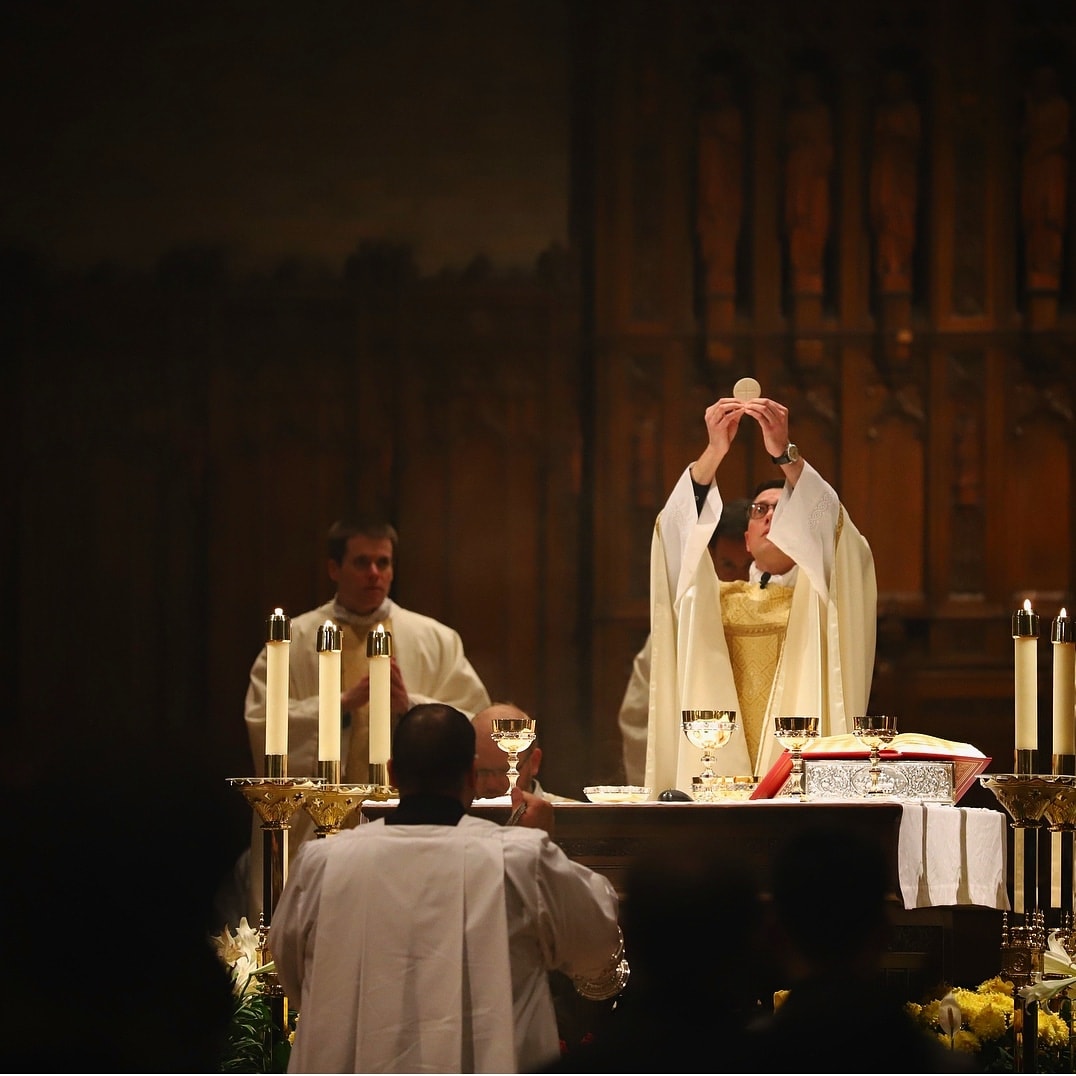
Mk. 14:12-16, 22-26
Today we celebrate the solemnity of the most precious body and blood of Jesus Christ. It is not a feast meant to celebrate and just bypass. Rather this feast reminds us of the core our Christian spirituality, the self-giving love of Jesus. Jesus instituted the Holy Eucharist on a Passover feast day. In the Old Testament we see the significance of the Passover feast for Israelites. They commemorate the liberation of Israel from the slavery of Egypt. Yahweh miraculously intervened in their history. All the first born of Egyptians were killed that very night. Therefore, Pharaoh changed his mind and liberated them. He helped them to cross the red sea, destroyed all the soldiers of Pharaoh who tried to chase and capture them back. He sustained them during their wilderness journey by providing food, meat, and water . He accompanied them in the form of cloud by day and fire by night. He made a new covenant with them at Mount Sinai and gave them Ten Commandments and destroyed all their enemies and led them to the promised land.
Jesus renewed this covenant by offering His own body and blood at the Last Supper table so that the humanity will be completely liberated from the eternal bondage of sin and inherit the eternal promised land. The body and blood of Jesus becomes the ransom before Yahweh for the humanity because the offerings and animal sacrifices of the Old Testament could not expiate the impact of human sin. The body and blood of Jesus became the perfect of offering and sacrifice because he was the spotless victim and the Pascal lamb. Similarly, the body and the blood of Jesus became the spiritual food and drink for the entire humanity that nourish them for the everlasting life. Whereas the manna could only nourish their physical body and all those cherished manna died during the wilderness journey.
The body and blood of Jesus reminds the self giving love or agapiaic love of Jesus. We have seen religious leaders, or enlightened people giving noble teachings for their followers. Where as, so far in the world history no one has given his own body and blood as spiritual food for the humanity. This is the uniqueness of the incarnation of Christ. He accepted human flesh which was fragile and sinful. Nevertheless accepting the human nature and bodily self, He sanctified human nature and bodily self and raised to its highest perfection of being the image and likeness of God. When we receive the body and the blood of Christ we are growing into this perfect image of humanity which was realised in Christ.
Finally we are called to be a Eucharist by living the spirituality of self giving sacrificial life of Christ by becoming a being for the other, living for the other like Christ. This is the supreme ideal of Christianity, becoming an Eucharist and allowing Christ to possess ourselves and transforming our lives as Eucharist. I believe, this is the most opportune time to live the spirituality of the Eucharist in our day to day life. Self- preservation is the basic instinct of all the living beings. Anyhow, we are called to walk the extra mile by way of preserving the life of our fellow bretheren. This pandemic time is the real litmus test of our Christian discipleship. Every year we celebrate this feast spending time in Eucharistic adoration and organising solemn procession with the Eucharist. This year we may not be able to worship the Eucharistic Lord as a community due to the pandemic restrictions but we can be the Eucharist by carrying the Eucharistic Lord in our hearts and reach out to our fellow and needy bretheren with our caring and self-giving love. May the celebration of this feast help each one of us to live the spirituality of the Eucharist in our day to day life.